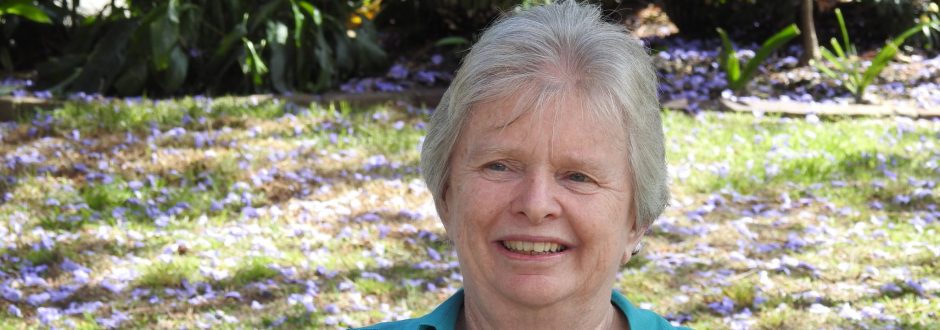It seems to me that we now live in an age of opinion – of assumption – where no one has to prove the veracity of their claims, writes Good Samaritan Sister Clare Condon.
BY Clare Condon SGS
Matt Golding’s cartoon in the Sydney Morning Herald on Monday July 10 highlights the disturbing increase in both the accusation of “fake news” in international and local media, and the actual publication of lies of prominent leaders – and many others.
Golding depicts Donald Trump racing out in front on the downward slope of the Tour de France, followed by a crowded media pack in hot pursuit, and then Lance Armstrong lagging way behind. The cartoon’s caption reads: “Yellow Jersey Competition for the King of the Mountain of Lies”.
“Fake news” is a term that can be used in the media to discredit authentic stories by reputable journalists. As well, fake news can be deliberately false or misleading news stories circulated in order to damage another’s reputation or good name.
Donald Trump, President of the United States, seems to have little or no ethical standards in how he uses this tactic. Through Twitter he makes claims of fake news to attack the dominant global media when it reports unfavourably about him. His actions seem to be a deliberate tactic to avoid accountability for his actions and those of his presidency.
The phenomenon of fake news, spin and deliberate misleading information is not new, particularly in politics and the media. However, since the proliferation of mass media, particularly with social media outlets like Facebook, Twitter and Instagram, it is difficult to know what is true and what is untrue, or what are simply deliberate and blatant lies.
It seems to me that we now live in an age of opinion – of assumption – where no one has to prove the veracity of their claims. It is a free-for-all! The search for truth has long gone as a fundamental principle within Western culture and for some people’s personal lives.
Not only is misinformation coveted (seemingly) in the political arena in order to discredit one’s opponents, it has become acceptable within the broader social milieu.
In the same edition of the Sydney Morning Herald in which Matt Golding’s cartoon appeared, there were two more stories of deceit. There was the news story about former French secret service agent Christine Cabon, who has acknowledged she infiltrated Greenpeace under an assumed name. In doing this, she gathered key information for the French Government which led to the July 10, 1985 bombing of the Greenpeace ship, the Rainbow Warrior, which killed Portuguese freelance photographer Fernando Pereira. Cabon is quoted as saying: “I wasn’t living a lie. I was playing a role. In a way, comedians would do a better job than us.” It is hard not to call her living “a lie”.
The other news story focused on Eman Sharobeen, a former Australian of the Year finalist who has been caught out lying about many aspects of her own life. She has been charged for alleged fraud and misappropriation of upwards of $685,000.
I am left wondering about this epidemic of acceptable lying and cheating, and in what direction it might lead our Western culture. There is no longer an accepted narrative, even by some who claim religious beliefs. The commandment: “Thou shalt not bear false witness” is no longer a guiding principle for those in public life.
On the home front, Tony Fitzgerald, former Queensland judge, has been commissioned by the Australia Institute to undertake a survey of Federal politicians in order to establish a set of ethical standards on which to base their behaviour. The “Fitzgerald Principles”, as they have been called, include: “to treat all citizens equally”; “to tell the truth”; “not to mislead or deceive”.
Apparently only 53 of 226 politicians signed up to these principles, while 36 refused to commit and 137 did not reply. These figures are staggering for a group of leaders who, for the most part, claim Christianity as their founding belief system.
Spiritual sages from all ages and traditions write about integrity and honesty as being fundamental principles for a fulfilling and dignified life. At the same time as I was reading this distressing news about the acceptability of lies, my congregation celebrated the Feast of St Benedict, who is our founding inspiration.
Benedict had no time for duplicity. He wrote in his Rule: “If you desire true and lasting life, keep your tongue from evil and your lips from deceit, avoid evil, do good, seek peace and pursue it” (Prologue 17). And in his long list of the “Tools of Good Works”, he said: “Do not plot deceit”.
These dictums could provide our current crop of politicians with a set of ethical standards that might help them with their own integrity, but also offer a fresh example for the communities they are called to serve.
